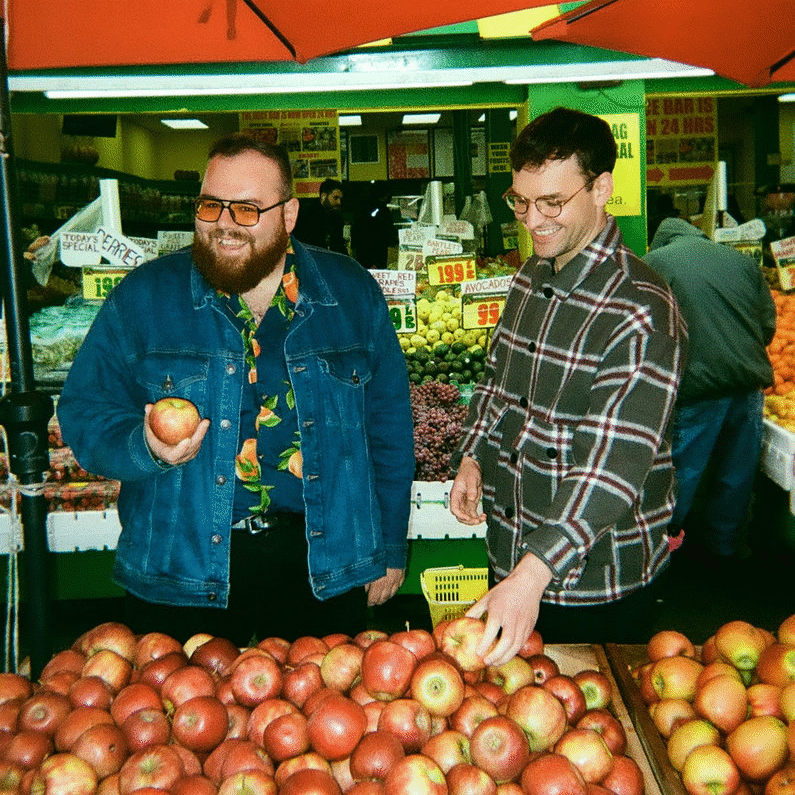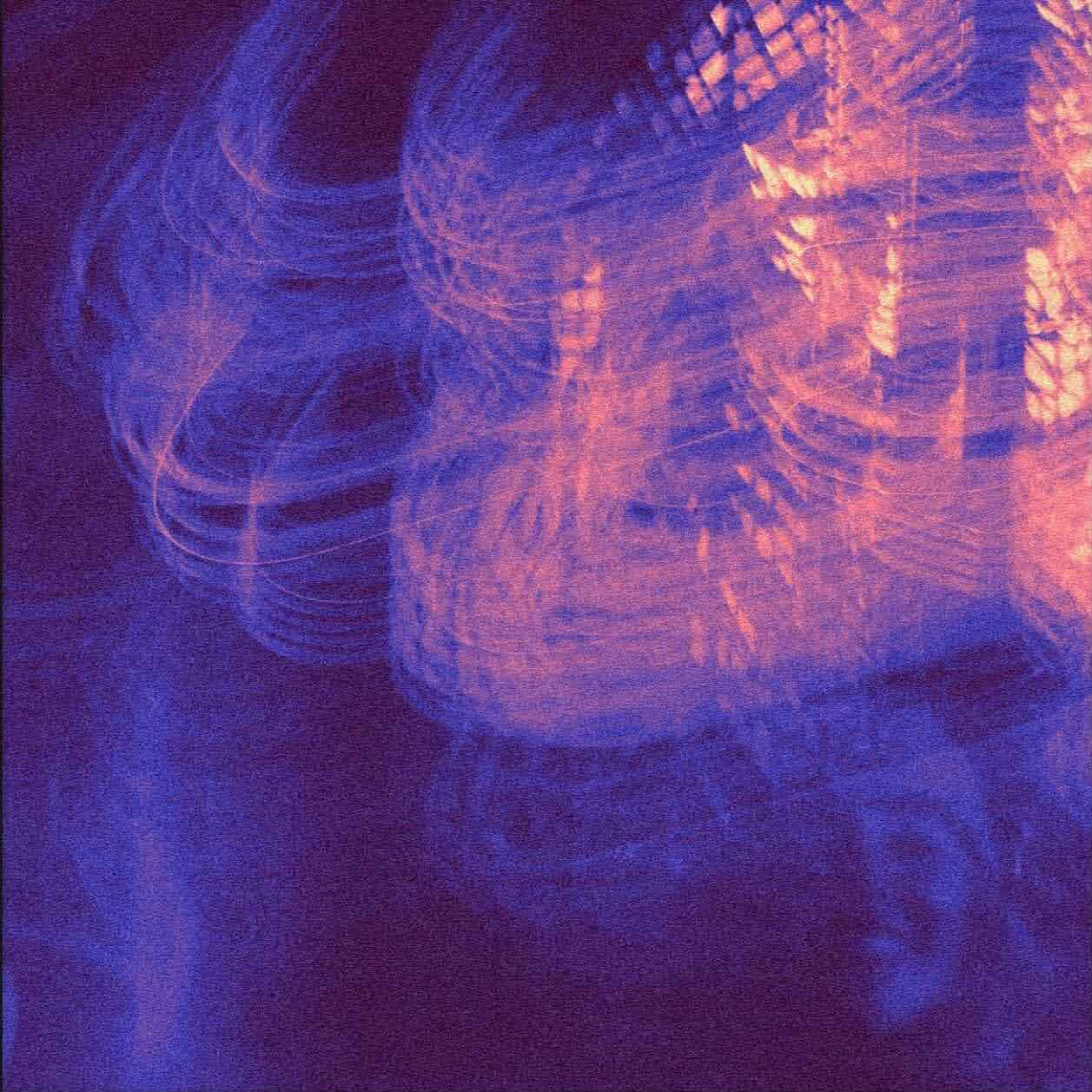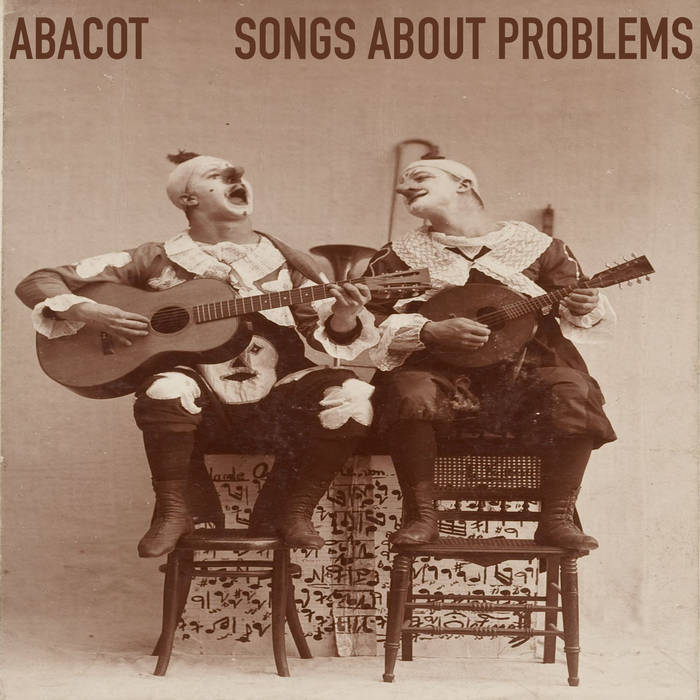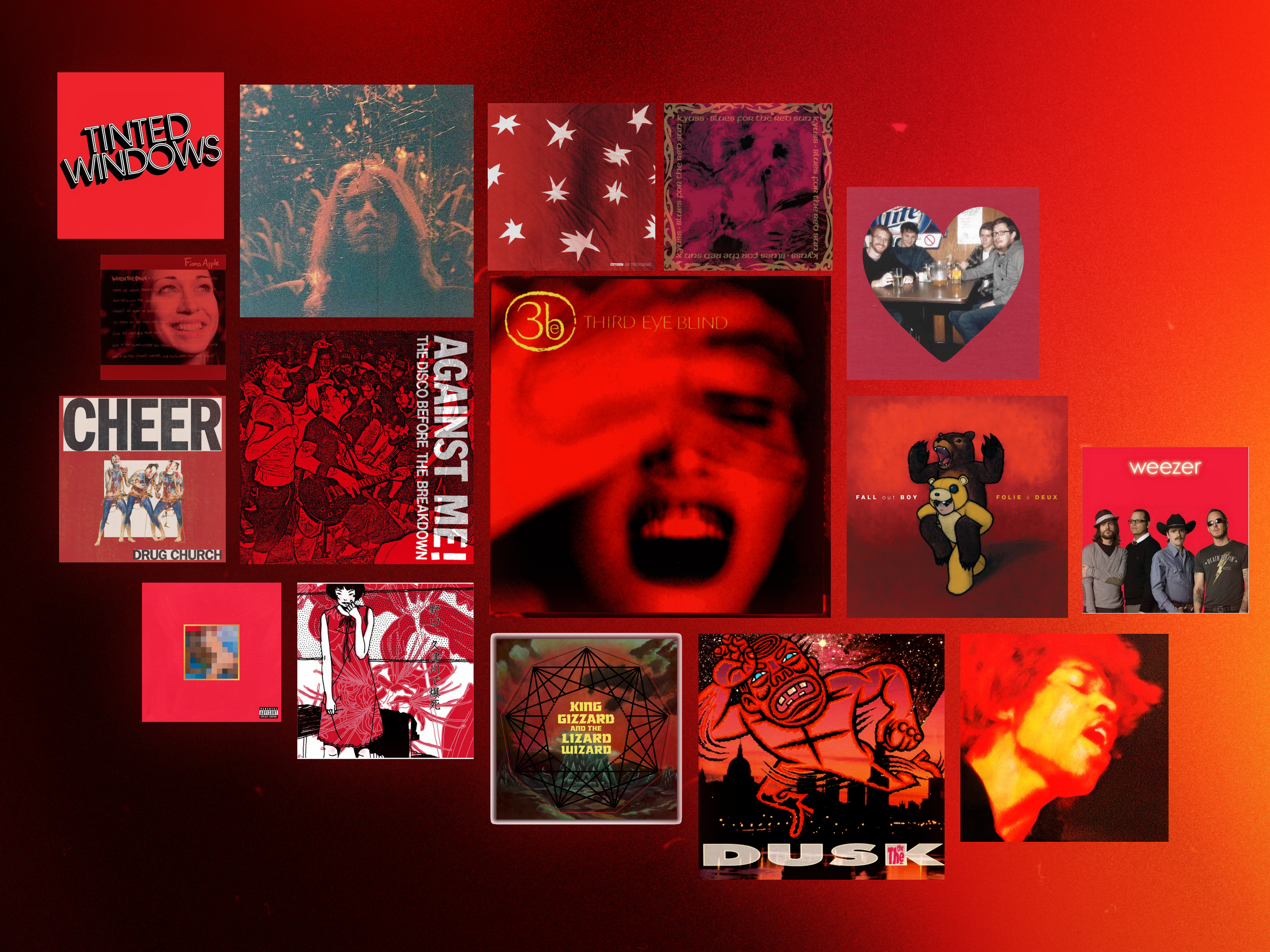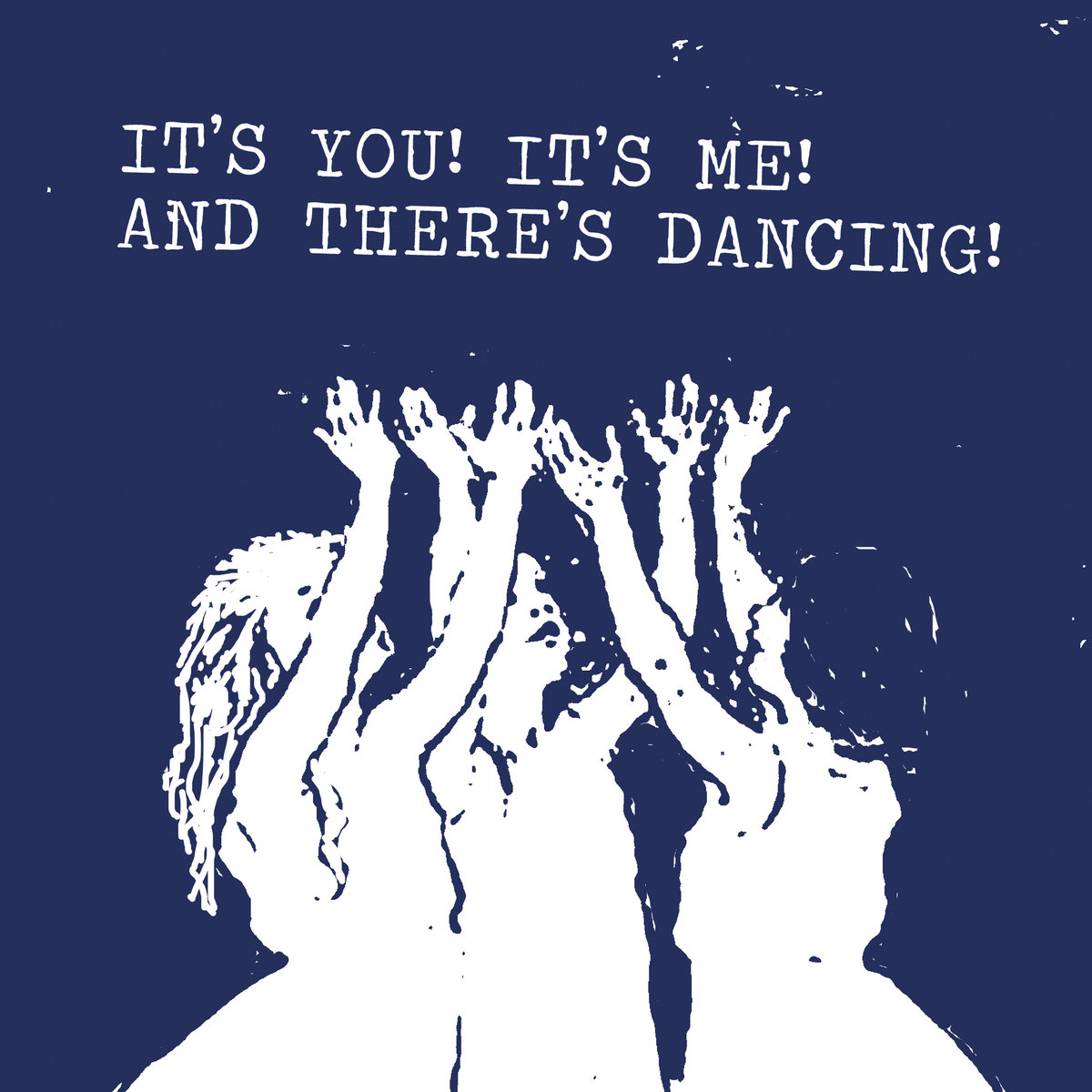HTML – Righteousness Endures Forever | Album Review & Interview
/I’ve been thinking about death a lot lately. My own death, the death of my parents, the deaths of my friends and the people I love. When I really get thinking about it, the totality of death just feels so all-consuming. It's endless and inevitable. It’s a heavy thing to have on your mind, but sometimes sitting in those thoughts is the only way through.
As long as I can remember, I’ve also always enjoyed albums about death; Carrie & Lowell, Psychopomp, Tunnel Blanket, Springtime and Blind, just to name a few. I think it’s fascinating to hear someone articulate their personal understanding of grief in such a public forum.
There’s something beautiful in hearing an artist you admire grappling with their own version of the same things that are weighing heavy on your mind. There’s something comforting in hearing that journey and those learnings summarized in a condensed album-length format. There’s also a strange peace of mind in knowing that something so gorgeous as any of those records can come from the loss of a loved one.
I don’t want to romanticize death, but it is a fact of life. It’s something we all brush up against at some point, and it’s a topic that people shouldn’t shy away from. HTML’s Righteousness Endures Forever is the latest in a long line of death albums in which I have found refuge. Pitched by lead singer Travis Verbil as “a dad-rock record about my dead dad (but chill though),” the release is heavily inspired by 70s singer-songwriter fare but also acts as a clear continuation of the emotional indie rock sound found on 2018’s Topmost Grief.
Album opener “How to Grow Muscle” begins with far-off bird chirps and a Jeff Tweedy-indebted acoustic guitar riff. Much like the opener from last year’s Unmake Me, this song grounds the listener in the physical space where our narrator is about to lose their loved one. With a first line of “outside the room you died / there were gold sunbeams and gardens green,” HTML waste no time jumping straight into the topic, immediately letting the listener know what type of album this is. The song describes the horror of walking in on your father having collapsed on the floor and the frantic thoughts and actions that go into the following minutes. It’s harrowing and morbid but also beautiful.
Knowing that Verbil has made it through this experience, processed it, and turned it into the beautiful piece of music you are now consuming gives a sense of relief that makes the recounting palatable. Rather than let this loss render him inconsolable, Verbil uses it to make a statement about impermanence–eventually arriving at the ironic conclusion that there’s a serene finality to be found in this kind of loss.
After something as heavy as this opener, “Queens Blvd (Drunk Moonlight)” adds some unexpected (but much-needed) levity to the affair with a cocky instrumental fit for strutting around Queens wrapped in your favorite jean jacket. After some good-natured borough-on-borough shit talk, initially-innocuous lyrics like “I will never let your buds die” begin to shine through and take on a whole new death-tinted double-meaning upon repeat listens.
The album’s upbeat streak continues with both “Reservation Cigarettes” and “Reapin’,” the former of which has a boppy acoustic groove and bouncy drum pattern while the latter bears the album’s most distorted guitar lick and catchiest chorus. Perfectly-placed bells give “Reapin’” a sun-soaked Sam’s Town-era Killers feel. Perhaps it’s more accurate to say Springsteen, but the two might as well be used interchangeably here. Evoking a religious-flavored viral tweet, Verbil outlines, “Reapin’ / I don’t like reapin’ / I much prefer sowing / So I sow” in one of the album's most singable moments.
Throughout the final three songs, HTML flips back into a more somber and introspective tone as Verbil shifts perspective to focus on his relationship with his mother, his late father, and eventually himself.
Album closer “Light Hypertrophy” ends the release on an overtly happy note as Verbil sings, “I’m glad I’m alive / Oh, I’m glad I never died / I’m glad, I’m glad I’m alive.” Hearing these words as the period mark on the end of an otherwise grief-filled album only reinforces that good can be pulled out of the depths, making the journey worth it.
After reiterating this affirmation of life, Verbil shares a condensed version of the process that led him to this optimism in the wake of his loss. In his most heartfelt delivery, he sings, “Lately I’ve been thinking / The hole that you left / could be where the light comes back.” He then pauses for a beat, letting the sentiment soak into the air before adding, “into my life.”
As these words wash over the listener, the release ends with more bird chirps, a lovely full-circle moment that acts as a reminder that life keeps moving. Much like those first chirps of birds in the morning, the record stands as a testament to beauty coming after darkness.
I sat down with HTML vocalist/guitarist Travis Verbil and lead guitarist Brian Mazeski to discuss their artistic process, death, and the creation of the band’s stellar sophomore record.
Photo by Hannah D’Arcy
SWIM: You describe the album as having a 70s-era singer-songwriter “dad rock” vibe first and foremost. What artists or albums most directly inspired this sound?
BRIAN MAZESKI: Travis had the idea to put together a sort of “inspiration” playlist while we were writing/ideating the album, and it was filled with both actual 70s music (Van Morrison, Dylan, Dr. John, Paul Simon) but also more modern singer-songwriter tunes. A lot of these artists and albums I had only heard in passing, but I started to listen to them more and more, just to have it all rolling around in my head while we were writing the album. I’m not sure any of that influence comes through explicitly on the album we actually wrote, but I do think that influence helped inform our decision-making, in sort of a “what kind of lead would Van Morrison want on this track” sense. And Travis would also use some of these influences for direction on certain instrumentation; if I were stuck writing a lead guitar part, he’d say, “think Van Morrison hazy seventh chords,” and somehow that would help.
SWIM: Righteousness Endures Forever represents a bit of a genre pivot for HTML. How do you view this record in relation to your previous work?
BRIAN MAZESKI: I think a big aspect of the genre/tone shift for me is that I think about music and writing music much differently now than I did when we wrote our first album. Back then, I wanted our songs to stand out for their complexity and technicality (which I still admire in artists/music), whereas writing this new album, my sensibilities aligned much more with Travis’s, and we both sort of locked into this goal of writing a free-wheelin', groove-oriented album of songs that all hit the ground running and could be arranged/played a number of ways and all sound good. That being said, I think we have a certain style (guitar tone sensibility, for instance) that is common to both albums, which is really cool given how different both projects are.
TRAVIS VERBIL: Going into this record, both writing and recording, I was on a really sprawling Dylan kick and tried my best to divorce my thoughts on production and genre from songwriting. It was extremely freeing. We were able to tear down a lot of walls we built for ourselves. I think our best work comes when we tend to think of genre as window-dressing.
SWIM: Given that the album is about your late father, the songs get into heavy topics and imagery. How do you go about writing and recounting things like this through your lyrics?
TRAVIS VERBIL: It didn’t feel particularly hard or uncomfortable to recall those moments to write; I already had gone through them a million times in my head. Between the living and the writing, the writing was certainly easier.
SWIM: You’ve tweeted before about being your own audience which is the creative philosophy I most respect at this point. How did you arrive here? Similarly, given that this record is so personal to you, who do you think this record is for?
BRIAN MAZESKI: One of the things I love about being in a duo with Travis is that we have a kind of litmus test method between the two of us such that, if we’re playing around with a song or an idea, if we both love it then we love it and the seal of approval ends there, and if one of us is lukewarm on it, we can usually play around with it more until we fix it or scrap it. But at the end of the day, we both want to make music we love, and we rarely make decisions based on how we think something is going to be perceived (I've definitely been guilty of that in the past, though). Nowadays, I think we both share the view that if you make art for and from yourself, you’ll find your tribe out there who dig it.
TRAVIS VERBIL: It’s been a long road, but I’m glad we arrived here. I feel like people get in your head at a young age and will try to be the arbiters, the proprietors of capital-c Cool or capital-s Style. Brian and I have been playing in bands together, playing a lot of different genres, since we were literal children. And in that time, the only times I have ever felt fulfilled or spiritually nourished, whatever you might call it, is when I feel like we’ve been true to ourselves and our shared sensibilities. In that vein, I feel like this record is for anyone that enjoys it, hopefully as much as we do.
SWIM: I love the cover art and feel like it perfectly captures the feeling of the record. Who took this photo, and why did it feel right to use it as the cover?
TRAVIS VERBIL: Thank you! I took the photo— it’s actually the view from my childhood bedroom window. And before you ask, yes, I grew up in front of a cemetery; that’s an extremely Queens thing. This photo was taken in 2017, I would guess. It’s the spot where my dad began planting a vegetable garden just weeks before he died.
SWIM: Between the title of the album and Reapin’, you evoke quite a bit of religious language throughout this record. What's your background with religion, and how does it factor into this collection of songs?
TRAVIS VERBIL: I had a Catholic upbringing, and a lot of that stuff just lingers in my head— especially when I think about death. There’s no real rhyme or reason to it. It’s always there, though.
SWIM: Sonically, it feels like the record has two modes: quiet, subdued folk tunes and explosive full-band bombast. Was this a conscious decision or just a byproduct of your songwriting process?
BRIAN MAZESKI: That’s a really good question, and I think you nailed it with the second bit about the songwriting process. Every track on the album came directly from an initial rough demo Travis sent via voice note, usually just him playing an acoustic guitar. For some of those tunes, we knew that “the song,” meaning the essence of what made it good or unique, was that it was loud and distorted and driving and quick, whereas for other tunes, we felt that “the song” was just Travis and the guitar, with maybe some ambient piano, and nothing else was needed. For the more subdued songs, I think we took our cue from classic songs we loved that are relatively minimal (either overall or maybe in the sense that they are drumless or more open rhythmically) and tried to be conscious of realizing/acknowledging what makes a song complete and what it actually needs versus what we can pile on in the studio.
Photo by Hannah D’Arcy
SWIM: I love the little ways you chose to round some of these songs out (the bells on Reapin’, the harmonica on NY Cowboy, even the bird chirps that appear throughout). I’d love to hear about the decisions that went into these little flourishes that appear across the album.
BRIAN MAZESKI: I am so glad to hear you dig those little details! I think we’ve always been interested in auxiliary percussion/instrumentation, dating way back to the first album Travis and I made years ago (we used bells and a ukulele and even some of Travis’s theater group members as a backing choir), but for whatever reason, I personally felt inspired to explore auxiliary percussion much more for this album. I really wanted these songs to groove and for people to feel the groove and bop their heads. I found myself thinking about being back in the high school percussion ensemble, playing all these shakers and guiros and bongos, and thinking about how so much of the music I love (both older and modern) takes full advantage of these tools (“Do It Again” by Steely Dan, for example, or the congas on “Patience” by Tame Impala) and that we should do the same if we want to make music that really grooves and makes people feel the rhythm.
As for the bird sounds, I was inspired by Travis’s vision for the album and wanted to go all-in on it; when we would talk about the sequence of songs on the album, he said the first track, “How to Grow Muscle,” is like the sun rising on the first day of summer, everything is lush and growing, and so I decided to throw some bird sounds at the beginning of one of the later demos and fortunately, we both liked it and decided to keep it for the final mix. Many of the songs on the album (as I understand them, and what I admire about them) are about a specific moment and feeling, and I felt like a small detail like bird sounds would go a long way toward transporting a listener (I hope!). There are dark moments and aspects to some of the songs and the album in general, but at the beginning of “How to Grow Muscle,” we want the listener to feel like they’re listening to the beginning of a new summer day.
SWIM: You haven’t released any music since 2018’s Topmost Grief, and death isn’t exactly something you can plan for in advance. When were these songs written, and how did this album come together?
TRAVIS VERBIL: It all came together very organically. In December 2020, just about six months after the Father’s Day when I discovered my father had passed away in the night, I broke three different bones in my foot in a freak accident. I ended up going on worker’s comp, and my boss (a songwriter himself) called me and told me to write an album to pass the time. I ended up staying with my sister for a few weeks since my apartment was a walk-up, and I started messing around with her acoustic guitar–the same one I taught myself on when we were kids.
I started writing one song a day and sending them to Brian. I started on New Year’s Day; I think that’s when I recorded the first demo for “How to Grow Muscle,” and by the end of the month all of the songs were written. Brian created arrangements for all the songs on the GarageBand app on his phone in the Winter, and he would send them to me, and we would talk about leads, drum parts, you name it.
There was an issue though— we had, essentially, already written most of the follow-up to Topmost Grief, an album we were calling Heaven II. We had to make a creative decision based on the moment, and, for a lot of different reasons, we decided to shelve Heaven II and go full-speed ahead with Righteousness.
It was the right call. We were in the studio that spring, started recording on weekends, and were finished by late July. We decided to sit on the record because we both envisioned it coming out at the beginning of the summer and decided that a Spring 2022 release date was best.
SWIM: Twenty minutes is pretty lightweight for an LP, but Righteousness feels like it has enough time to tell a complete story. How was it to assemble this collection of songs? I’m curious if there was any whittling down on your part, or did these seven songs just make sense?
TRAVIS VERBIL: We had some songs that didn’t make the cut for us. There were songs called stuff like “Rosemary,” “My Cup Runneth Over With Junk,” “Death House,” one called “The Last of the Coffee Grounds,” and a handful more that didn’t do it for us. Some of them we really liked and some of them we liked less. Brian and I came to the consensus we’d rather have a very tight set of seven than release a record with songs we didn’t think were our absolute best. I was also very inspired by summer 2018 when Kanye put out a new seven-track record he produced every Friday. I really dug some of those records, mostly Pusha T’s DAYTONA, and thought that we could similarly get away with a seven-song tracklist.
SWIM: Were there any other albums or pieces of media (about death or otherwise) that helped you through your personal experience with loss?
TRAVIS VERBIL: I kept going back to “Real Death” by Mount Eerie. I have this very funny memory of making my girlfriend and sister listen to it in a hotel room before going out on the town in South Beach, Miami. Talk about a pre-game!
SWIM: Queens, NY plays a central part in the identity of this record and your band. How do you see that physical space coming through in these songs, and why is that important?
TRAVIS VERBIL: I feel like I spent some of my earlier years wishing I had a Brooklyn demeanor, Brooklyn sensibilities, all that. I wasn’t being true to myself. I’m a Queens guy; I’m a 7 Train guy, a chicken-over-rice guy, a white sauce and hot sauce guy, a Let’s Go Mets guy. We wrote these songs during the one year of my life I lived in Brooklyn, and as much fun as I was having, I definitely missed Queens. And the more I wrote about my dad, the more I missed Queens. Just like the genre stuff I said earlier, I really felt like making this album so unapologetically Queens was fundamentally important in Brian and I being true to ourselves.
SWIM: The final song speaks for itself and ends the album on a bright, optimistic note. What’s one thing you hope people take away from this album as a whole?
TRAVIS VERBIL: The response to this record from our friends and contemporaries has been unreal. All I could hope is that people are excited for what’s next.

